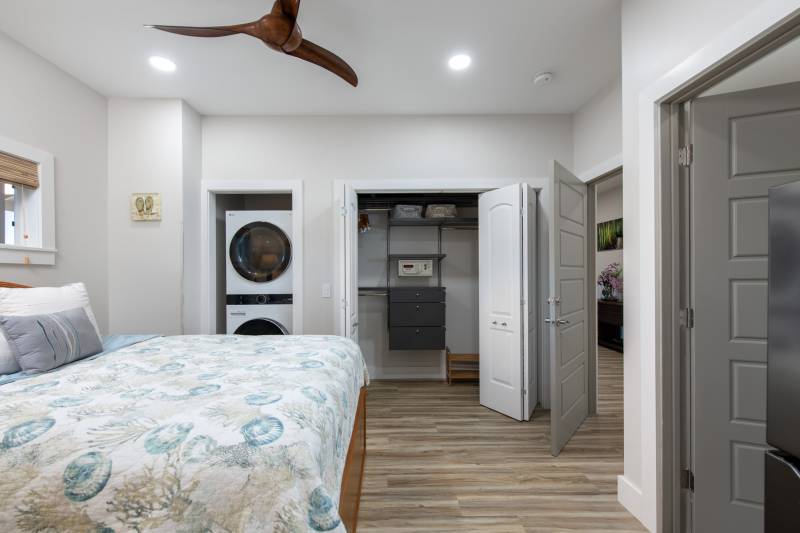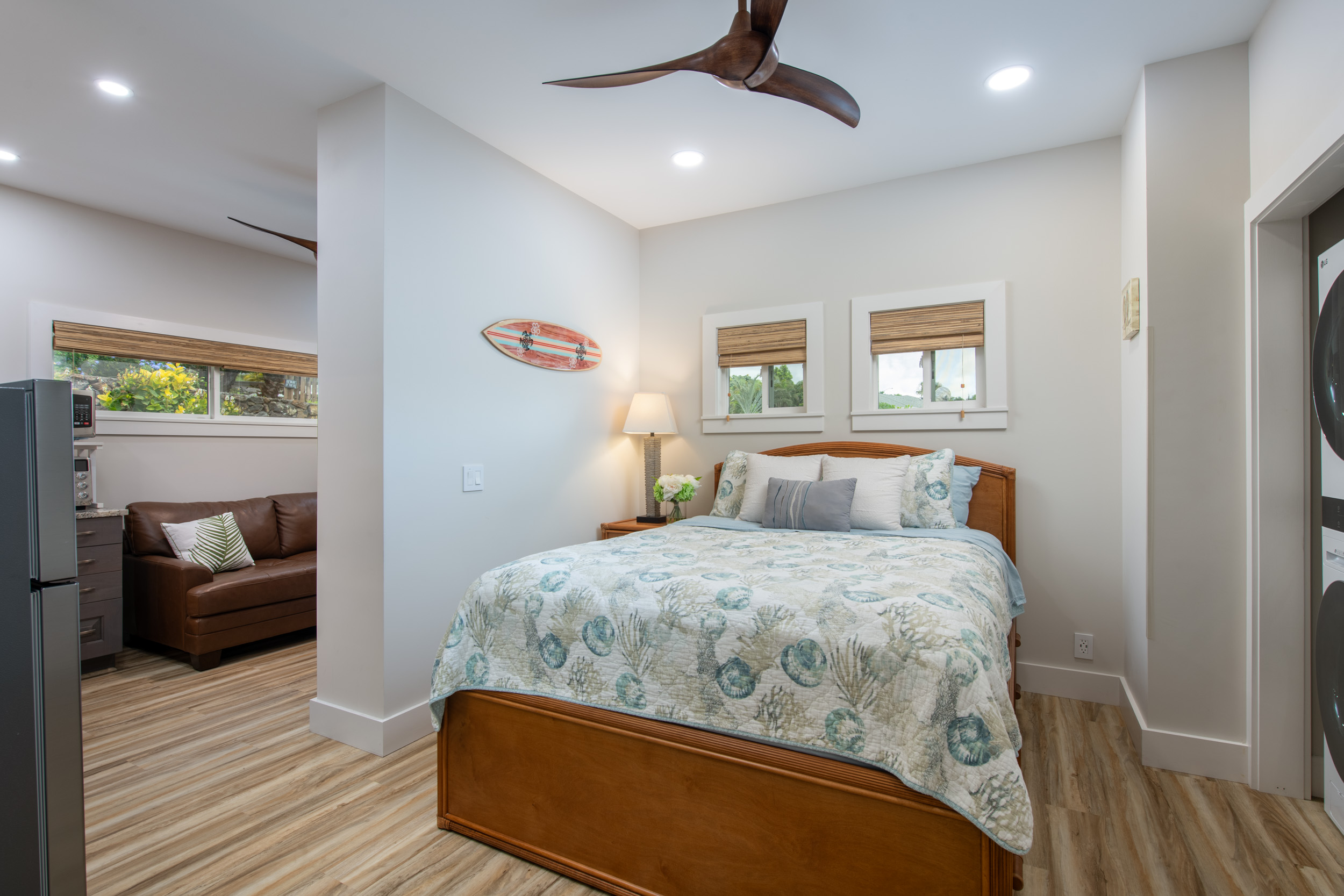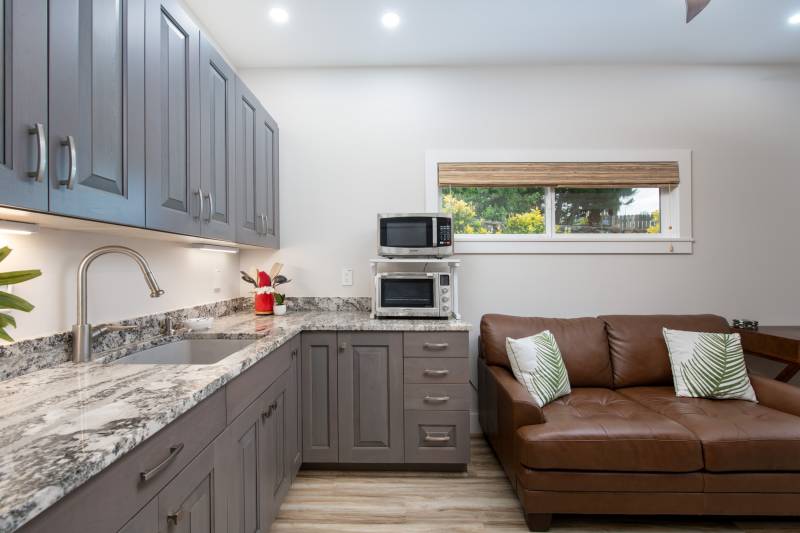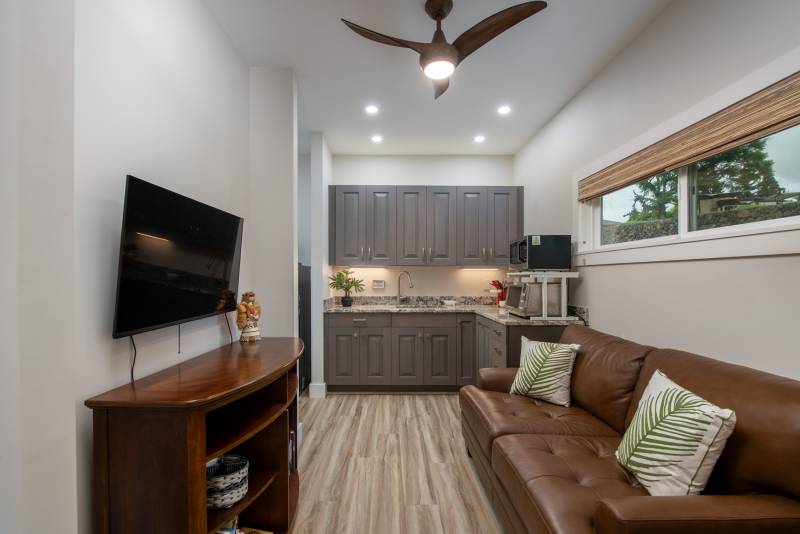The Value of Accessory Dwelling Units (Ohana Unit) and Guest Suites
In today’s housing market, the demand for versatile living spaces is higher than ever. Homeowners in Hawaii are increasingly turning to guest suites and in-law units to enhance their properties. These additional living spaces provide comfort and privacy for guests or extended family members and offer potential for rental income. Let’s delve into the various configurations of these units, their differences, benefits, and their potential for short-term vacation rentals or long-term income.
What is an Ohana Unit?
An Ohana unit, derived from the Hawaiian term for “family,” is essentially a secondary dwelling unit on a residential property, also known as an accessory dwelling unit (ADU). This can be a separate building or a section of the main house, complete with its own entrance, kitchen, bathroom, and living space. Ohana units are designed to accommodate extended family members, guests, or even renters, offering them privacy and independence.

MLS 711328 features an attached guest suite.

Benefits of an Accessory Dwelling Unit (Ohana Unit):
- Additional Income: Renting out the unit can provide a steady income stream, making your property work for you.
- Guest Accommodation: Perfect for hosting family and friends without sacrificing privacy, giving everyone their own space.
- Increased Property Value: Adds significant value to the property, making it an attractive option for future buyers.
- Flexibility: Can be used for various purposes such as a home office, art studio, or gym, catering to your changing needs.
What is a Guest Suite?
A guest suite is a designated area within the main house specifically designed for guests. It typically includes a bedroom and bathroom and may have a small kitchenette or sitting area. Guest suites provide a comfortable space for visitors while keeping them close to the main living areas.
Benefits of a Guest Suite:
- Convenience: Allows guests to stay close to the family, promoting more interaction and bonding.
- Cost-Effective: Less expensive to build and maintain compared to a separate dwelling like an ADU.
- Enhanced Hosting: Provides a dedicated space for guests, making it easier to entertain and accommodate visitors.
- Integrated Living: Ideal for shorter stays, ensuring guests are comfortable while remaining part of the household.
What is an Attached Guest Suite?
An attached guest suite is a hybrid between an accessory dwelling unit (ADU) and a traditional guest suite. It is connected to the main house but has its own entrance, giving it a level of independence similar to an ADU. Attached guest suites often include a bedroom, bathroom, small living area, and sometimes a kitchenette and/or private entrance.
Benefits of an Attached Guest Suite:
- Privacy and Independence: Guests can come and go without disturbing the main household, ensuring their comfort and yours.
- Versatility: Can be used for long-term stays, making it suitable for extended family visits or even rental purposes.
- Added Value: Enhances property value by offering flexible living arrangements that appeal to a wide range of buyers.
- Balance of Integration and Independence: Guests are close to the main house but still have their own space, making it a balanced option for everyone.

MLS 711328 features an attached guest suite.

Comparing Accessory Dwellings (Ohana Units), Guest Suites, and Attached Guest Suites
- Ohana Unit: Best for complete independence and long-term stays, suitable for rental (long term or short term) or family members who need their own space.
- Guest Suite: Ideal for short-term visits, cost-effective, and integrated within the main house.
- Attached Guest Suite: Offers a middle ground with a mix of privacy and convenience, suitable for both short-term and long-term stays.
Investing in an accessory dwelling unit or guest suite can transform your Hawaii home into a versatile and valuable asset. Whether you’re looking to generate income, provide comfortable guest accommodations, or increase your property’s value, these additions offer incredible benefits that cater to your needs and enhance your lifestyle.
Short-Term Vacation Rentals
Hawaii has stringent regulations regarding short-term vacation rentals (STVRs) and prefers them in resort-owned zones to residential communities. Yet currently, if the home is owner-occupied, properties can be used as short-term rentals, and there are no laws against long-term rentals over 180 days. Investors and buyers need to keep up with possible upcoming legislation that will make the laws for short-vacation rentals in single-family homes even more strict.
Conclusion
Guest suites and in-law units offer homeowners in Hawaii the flexibility to accommodate guests, provide independent living spaces for family members, and generate rental income. However, it’s crucial to stay on top of all current and upcoming regulations to ensure compliance with local laws, especially if you plan to use these spaces for short-term vacation rentals. By understanding the benefits and legal considerations, homeowners can make informed decisions that enhance the value and functionality of their properties while enjoying the beautiful lifestyle Hawaii has to offer.

David Arndt
January 31, 2025
Aloha!
I read your article “The Value of Accessory Dwelling Units (Ohana Unit) and Guest Suites”. I am currently looking at real estate in Kihei and a few of the properties have Ohana units which would be great to rent out! My wife and I would be living in the home, so what would the short term rental laws be since we wouldn’t likely be in an area that is zoned for short term rental.
Most things that I have read said you need to live in the home for 5 years in order to qualify for short term rental.
I have also read that I may qualify for a B&B permit but others say that you also need to live in the home for 5 years to qualify for that one as well.
Your clarification on these rules would be greatly appreciated!
Thanks!
David